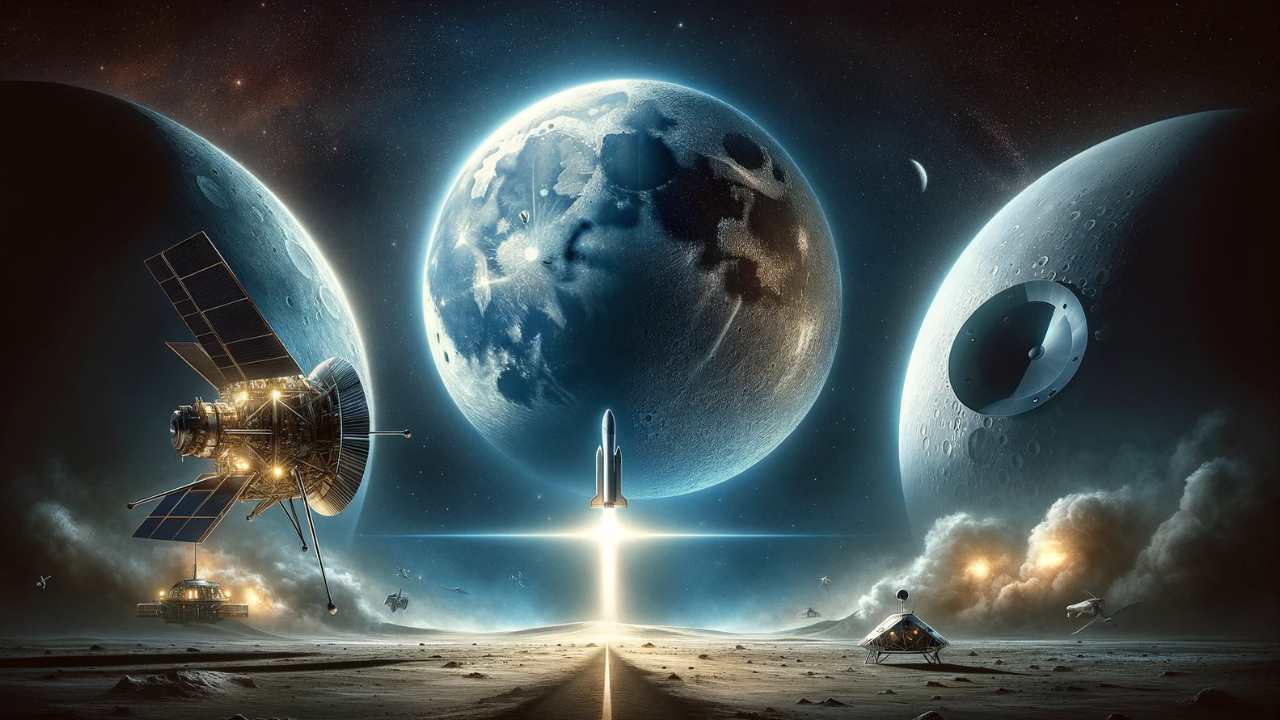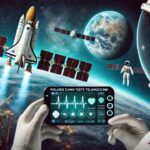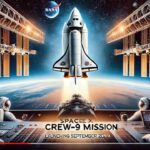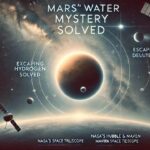“Blue Origin, SpaceX, Moon landing, lunar exploration, Jeff Bezos, Elon Musk, Artemis missions, space race, NASA, Blue Moon lander, New Glenn rocket, aerospace technology, Blue Origin vs. SpaceX”
“Explore the thrilling race to the Moon between Blue Origin and SpaceX. Discover how Blue Origin’s ambitious plans for lunar exploration challenge SpaceX’s dominance, intensifying the competition for space supremacy. With innovative missions, groundbreaking technology, and strategic NASA collaborations, the American space race enters a new era of exploration and discovery. Read on to learn more about the future of lunar missions and the pivotal role of these aerospace giants.”
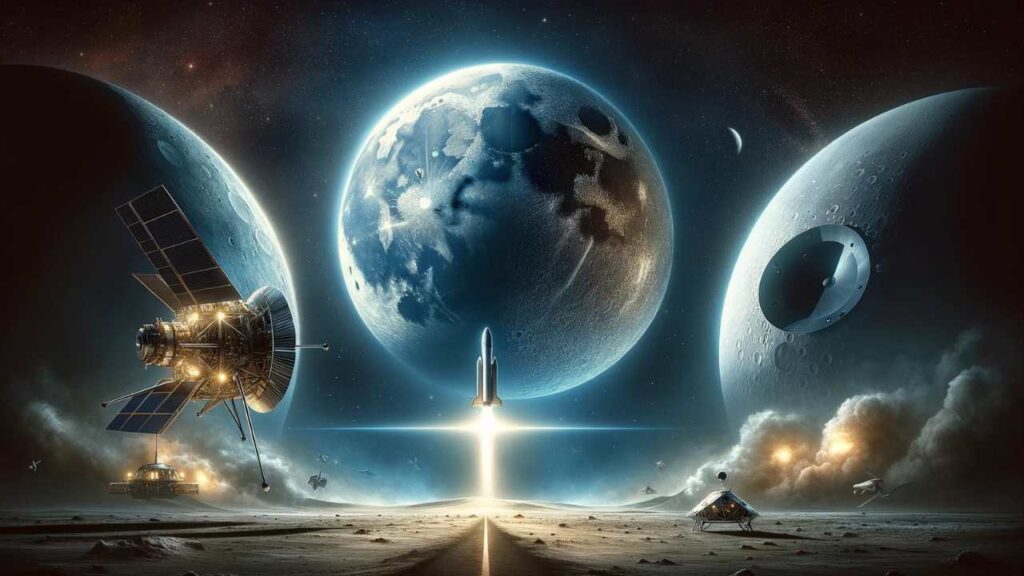
Pioneering a Path to the Lunar Surface
In a significant stride towards lunar exploration, Blue Origin, the American aerospace manufacturer established by Jeff Bezos, is making headlines with its audacious plans for a Moon landing. The company has declared intentions to launch an uncrewed mission to the Moon using its Blue Moon Mark 1 (MK1) cargo lander within the forthcoming year. This announcement intensifies the competitive dynamics of space exploration, positioning Bezos and his enterprise in a direct contest with Elon Musk’s SpaceX for lunar supremacy.
Aiming for Lunar Presence
During a recent feature on CBC’s “60 Minutes,” John Couluris, the senior vice president for lunar permanence at Blue Origin, revealed the company’s timeline. “We’re expecting to land on the Moon between 12 and 16 months from now,” Couluris stated, emphasizing the team’s commitment to this ambitious goal. This projection is not without its risks, as the space industry’s history is replete with instances where optimistic timelines have led to scrutiny and criticism.
The Pathfinding Mission: MK1-SN001
The pathfinder mission, designated MK1-SN001, is crucial for demonstrating the capabilities of the MK1 cargo vehicle. It involves rigorous tests of the BE-7 engine, cryogenic fluid power, propulsion systems, and avionics, among others. Success in these areas is vital for advancing Blue Origin’s Human Landing System (HLS) initiative for NASA, highlighting the company’s transition from slow-paced development to a more assertive stance under new leadership.
The Blue Moon Project and NASA Collaboration
The announcement comes on the heels of a significant contract with NASA, valued at $3.4 billion, awarded to Blue Origin for the development of a second Moon lander for the Artemis missions. Unlike its precursor MK1, the Blue Moon is designed for repeated missions and will play a crucial role in transporting astronauts to and from the lunar surface.
Overcoming Challenges and Rivalry with SpaceX
Despite the ambitious plans, Blue Origin faces the challenge of launching its New Glenn rocket, the designated launcher for both MK1 and Blue Moon missions. Meanwhile, SpaceX, with its Starship program, is also vying for lunar exploration missions but has encountered delays. The competition between Blue Origin and SpaceX underscores a rejuvenated American interest in space exploration, with both companies pushing the boundaries of what’s possible.
NASA’s Strategy for Lunar Exploration
NASA’s approach of engaging multiple companies for lunar lander development ensures redundancy and flexibility in its Artemis program. The space agency’s collaboration with both Blue Origin and SpaceX is a testament to the burgeoning space industry and the critical role of private enterprises in advancing lunar exploration.
Looking Ahead: Innovations and the Future
Rumors of Blue Origin developing a next-generation spacecraft to compete with SpaceX’s Crew Dragon and Sierra Space’s Dream Chaser indicate that the rivalry and innovation in space exploration are far from over. As the US continues to spearhead efforts to return to the Moon and beyond, the contributions of companies like Blue Origin and SpaceX are invaluable, heralding a new era of exploration and discovery in the final frontier.
- NASA Juno Mission Reveals Oxygen Production Mysteries
- SpaceX-NASA Crew 8 Mission
- NASA Telescopes Find New Clues About Mysterious Deep Space Signals
- Odysseus Lande Beams home 1st photos from Space
